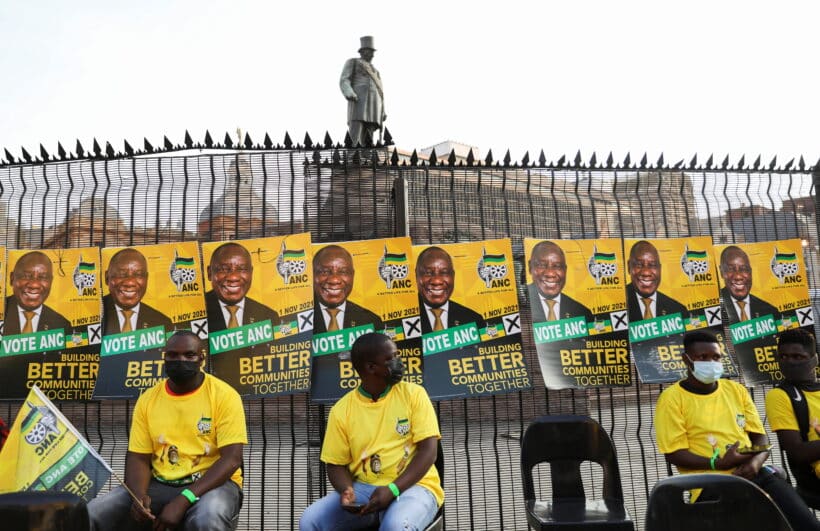
JOHANNESBURG, March 14 (Reuters) – South Africa’s ruling African National Congress (ANC) party is betting on retaining its parliamentary majority in a May election and is not in talks with other parties on a possible coalition government, the party’s deputy secretary general said.
South Africans will go to polls on May 29 to elect a new National Assembly, which will then choose the next president.
“We will not go to war having accepted defeat. We are going to war to win,” ANC veteran Nomvula Mokonyane told Reuters in an interview, adding that the party was aware that “stakes are high because not everybody is comfortable with us in power.”
Surveys show that the ANC is likely to lose its parliamentary majority for the first time since Nelson Mandela led it to power at the fall of apartheid 30 years ago. This would open up the prospect of coalition rule.
“A coalition government won’t work for now,” said Mokonyane, pointing to failed power-sharing attempts at the local government level, where coalitions have largely proved unstable due to a lack of legislation to regulate the partnerships.
But the ANC is open to working with anyone as long as they agree on “the task at hand”, Mokonyane added.
The ANC’s image has been tarnished in the past decade by economic stagnation, rising unemployment and repeated corruption scandals involving its top officials.
Analysts say losing its majority might jolt the party to do better on service delivery, expand the economy and address other ills like crime and corruption. But coalitions could also end up being fractious and impeding already poor service delivery.
Potential coalition partners for the ANC could include the largest opposition party, the Democratic Alliance, and the far-left Economic Freedom Fighters party.
Mokonyane portrayed the ANC as having learned from its mistakes, such as extending the country’s electricity network to more people without boosting generation capacity or investing in renewables. Power cuts are now a part of daily life in South Africa.
Thirty years after the end of white minority rule, more than 30% of South Africans are unemployed, the murder rate is rising, and income inequality is among the highest in the world.
“We are quite certain that with our challenges and imperfections, those happened because we’re doing something that was never done,” said Mokonyane.
She criticized foreign ownership of land and mineral resources and said the ANC would do more to put national interests first, while emphasizing the progress it has made in areas such as social welfare and girls’ education.
“The inequality that we see… it’s very stubborn,” she said. “We’ve tried to turn it around, and 30 years is not a (long) enough period to turn things around.”
(Reporting by Olivia Kumwenda-Mtambo and Nellie Peyton, Editing by William Maclean)